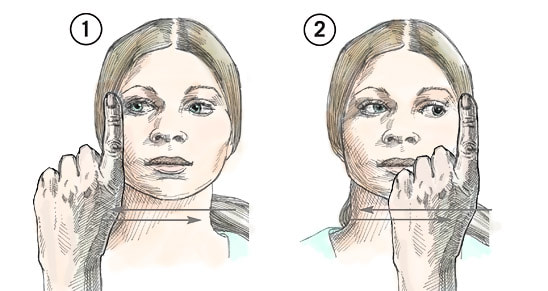Eye Movement Desensitization Reprocessing (EMDR)

EMDR (Eye Movement Desensitization and Reprocessing) is a psychotherapy that enables people to heal from the symptoms and emotional distress that are the result of disturbing life experiences. Repeated studies show that by using EMDR people can rapidly experience the benefits of psychotherapy that once took years to make a difference. It is widely assumed that severe emotional pain requires a long time to heal. EMDR therapy shows that the mind can in fact heal from psychological trauma much as the body recovers from physical trauma. When you cut your hand, your body works to close the wound. If a foreign object or repeated injury irritates the wound, it festers and causes pain. Once the block is removed, healing resumes.
EMDR therapy demonstrates that a similar sequence of events occurs with mental processes. The brain's information processing system naturally moves toward mental health. If the system is blocked or imbalanced by the impact of a disturbing event, the emotional wound festers and can cause intense suffering. Once the block is removed, healing resumes. Using the detailed EMDR protocols and procedures, clinicians help clients activate their natural healing processes.
EMDR therapy demonstrates that a similar sequence of events occurs with mental processes. The brain's information processing system naturally moves toward mental health. If the system is blocked or imbalanced by the impact of a disturbing event, the emotional wound festers and can cause intense suffering. Once the block is removed, healing resumes. Using the detailed EMDR protocols and procedures, clinicians help clients activate their natural healing processes.
There has been so much research on EMDR that it is now recognized as an effective form of treatment for trauma and other disturbing experiences by organizations such as the American Psychiatric Association, the World Health Organization and the Department of Defense. Given the worldwide recognition as an effective treatment of trauma, you can easily see how EMDR would be effective in treating the "everyday" memories that are the reason people have low self-esteem, feelings of powerlessness, and all the myriad problems that bring them in for therapy.
EMDR therapy is an eight-phase treatment. Eye movements (or other bilateral stimulation) are used for reasons believed by a Harvard researcher to be connected with the biological mechanisms involved in Rapid Eye Movement (REM) sleep. Internal associations arise and a client begins to process memory and associated disturbing feelings.
In EMDR therapy, the meaning of a painful event is transformed on an emotional level. For instance, a rape victim shifts from feeling horror and self-disgust to holding the firm belief that, "I survived it and I am strong." Unlike talk therapy, the insights clients gain in EMDR therapy result not so much from clinician interpretation, but from the client's own accelerated intellectual and emotional processes. The net effect is that clients who complete EMDR therapy leave feeling empowered by the very experiences that once debased them. Their wounds have not just closed, they have transformed.
EMDR therapy is an eight-phase treatment. Eye movements (or other bilateral stimulation) are used for reasons believed by a Harvard researcher to be connected with the biological mechanisms involved in Rapid Eye Movement (REM) sleep. Internal associations arise and a client begins to process memory and associated disturbing feelings.
In EMDR therapy, the meaning of a painful event is transformed on an emotional level. For instance, a rape victim shifts from feeling horror and self-disgust to holding the firm belief that, "I survived it and I am strong." Unlike talk therapy, the insights clients gain in EMDR therapy result not so much from clinician interpretation, but from the client's own accelerated intellectual and emotional processes. The net effect is that clients who complete EMDR therapy leave feeling empowered by the very experiences that once debased them. Their wounds have not just closed, they have transformed.
Watch this video with Francine Shapiro, Ph.D, the founder of EMDR.
How to Make an Appointment
Complete an intake online or call 609-844-0452, extension 713 to schedule an intake. Most insurances are accepted.
See a list of all services and programs offered.
|
|
|
|
Lawrenceville Location: 22 Gordon Avenue Lawrenceville, NJ 08648 |
|